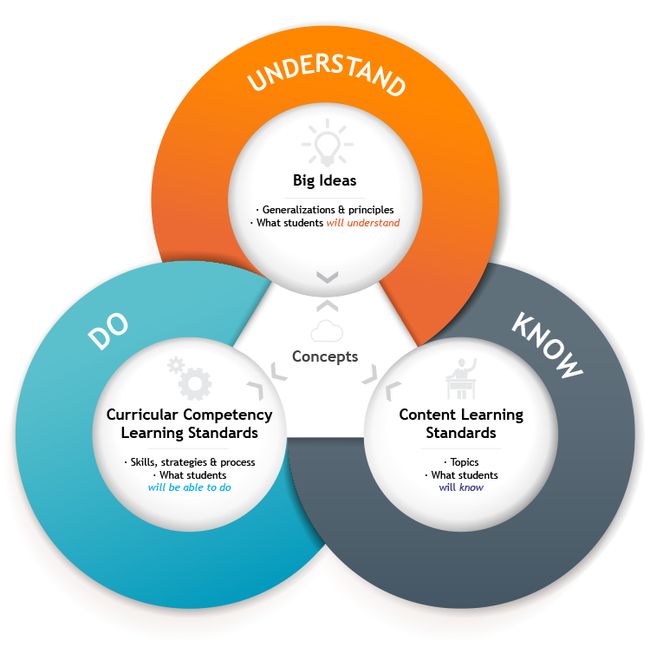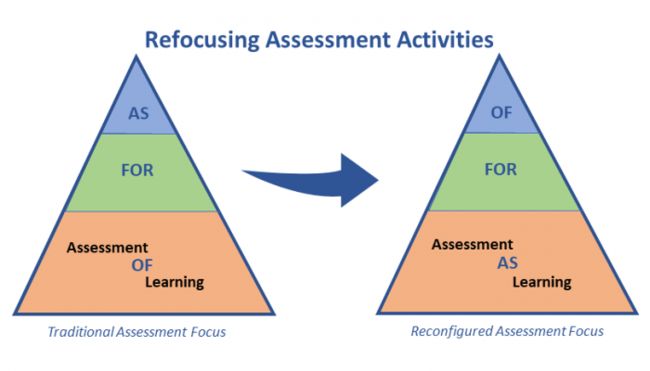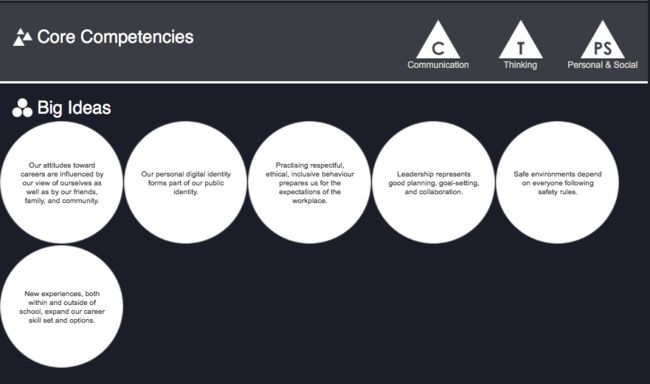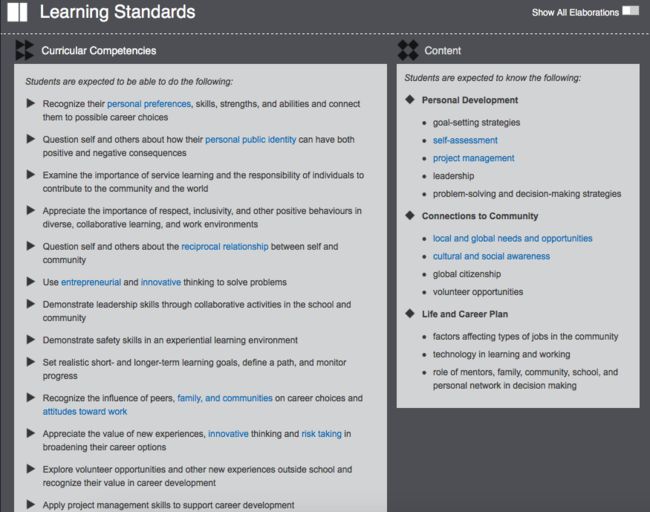Coming back this summer, I realized that BC’s education has been going through a major shift towards a quality education (holistic learning approach). Even though I thought it did a pretty good job before when I was in high school here, I realized that the BC government is really putting an emphasis on education as a strategy to create talents & nation wide economic growth. As stated on the BC Ministry of Education site, "British Columbia’s Kindergarten to Grade 12 education system is being updated and enhanced. New mandated curriculum for Kindergarten (K) to Grade 9 began in Fall of 2016. New Grade 10-12 curricula will roll out in Fall 2018 (Grade 10) and Fall 2019 (Grades 11 and 12).”
“BC省从幼儿园到12年级的教育体系正在不断更新和完善。幼儿园(K)到9年级的新强制课程于2016年秋季开始。新的10 - 12年级课程将于2018年秋季(10年级)和秋季推出 2019年(11年级和12年级)。“
The 3 changes I’d like to mention today are the changes noted by Liesel Knaack Director, Centre for Innovation and Excellence in Learning, Vancouver Island University on the BC Curriculum that was rolled out in 2016:
1. Core competencies (as the focus) 核心素养(作为重点):
The introduction of “Core Competencies” are front and centre to the new K-12 curriculum. They are to be integrated into all subjects and grades. The competencies are sets of intellectual, personal, social and emotional proficiencies that all students should develop to engage in more meaningful and life-long learning experiences. Think of these as the ‘soft skills’ required for success throughout life.Similar to the 21st century learning model, we’re looking at developing competencies rather than grades of students on a holistic level.
这些能力包括所有学生应该发展的智力,个人,社交和情感能力,以便参与更有意义和终身学习的经历。
2. Concept-Based Competency-Driven Framework: Know-Do-Understand Model 基于概念的核心素养框架:知识-技能-理解模型
Now, comes the what part - what do we expect our students to learn. Over here, the BC MoE states three key areas that form the foundation of this framework:
1. Know (aka Content Learning Standards): These are the essential topics and knowledge at each grade level that students need to know. This is ‘content’ that students learn. These are less detailed and prescriptive (and less in terms of ‘amount’) than past curricula. This allows teachers and students to go in directions of particular interest or local relevance, as well as dive deeper into fewer topics and focus less on rushing through a list of factual details in an attempt to ‘cover’ all the required topics.
2. Do (aka Curricular Competency Learning Standards): These are the skills, strategies and processes that students will develop over time. These are more subject/discipline specific, but they also connect to the core competencies. This the demonstration and application of content through the ‘how’ of the learning.
3. Understand (aka Big Ideas): These are the generalizations, principles, key concepts and other important ideas in an area of learning. These big ideas are what students should understand by the completion of the curriculum for their grade, but they are intended to persist beyond a single grade and aid in future understanding. These are the concepts or principles that you want students to fully understand beyond anything else in the course, class or subject.
1. 学生需要了解的每个年级的基本主题和知识。 这是学生学习的“内容”。
2. 学生随着时间的推移而发展的技能,策略和过程。 这些更具针对性/专业性,但它们也与核心素养相关联。
3. 学习领域的概括,原则,关键概念和其他重要思想。
3. Assessment As Learning: Communicating Student Learning through Competency-Based Assessment 评估作为学习:通过基于能力的评估来传达学生的学习
Assessment and instruction are very interconnected, and so BC’s assessment system has been redesigned to align with the new curriculum. Assessment is given a much higher profile than in the past. Of course, it still is, however it’s changed more from assessment of learning towards assessment as learning.
Assessment of all forms will be more flexible and exhibit a more personalized approach to learning to measure deeper and more complex thinking. In addition to the provincial assessment changes as noted above (e.g., Literacy and Numeracy Assessments), classroom assessment and reporting will be aligned with the new “Know-Do-Understand” model. Self-assessment and reporting of the new Core Competencies is also a new assessment area for students and educators.
There is a greater emphasis on assessment AS learning (where students can monitor and critically reflect on their learning and make decisions about learning strategies)and less emphasis on assessment OF learning (where students engage in a task or activity geared to measure, record and report on their achievement on specific expectations).
The triangle diagrams show the shift from a greater emphasis on assessment of learning (tests, assignments, quizzes, formal evaluations) to more assessment as learning (self-assessments, peer-assessments, reflections on learning, self-regulation monitoring etc.) – and this aligns with all the significant research in teaching and learning. Students have richer and more impactful learning experiences when they have more opportunities to engage in assessment AS learning. Assessment for learning (the ongoing assessment teachers do to monitor a student’s day to day progress to modify teaching) remains important in the reconfigured assessment focus.
三角图显示了从更加强调学习评估(测试,作业,测验,正式评估)到更多评估作为学习(自我评估,同伴评估,学习反思,自我监管等)的转变 - 这符合所有重要的教学和学习研究。 当学生有更多机会参与评估AS学习时,学生将获得更丰富,更有影响力的学习体验。
-----------
This for me validates the essence of future education as we start to focus more beyond the typical knowledge learning points, moving into a competency driven education. Rethinking the whole concept of know-do-test, as we move into the deeper understanding of the big ideas that relate to our society. Finally, thinking of assessments not just as a tool to test the learning, but to see it as the learning as a metacognitive part of learning. This is the crux of what education should be and I’m glad to hear that BC is pushing this forward in our K12 education.
For more on the changes of the BC curriculum, check out: https://curriculum.gov.bc.ca/curriculum
For more on the BC graduation literacy specifications, check out:
https://curriculum.gov.bc.ca/sites/curriculum.gov.bc.ca/files/pdf/Graduation_Literacy_Specs_Spring_2018.pdf




